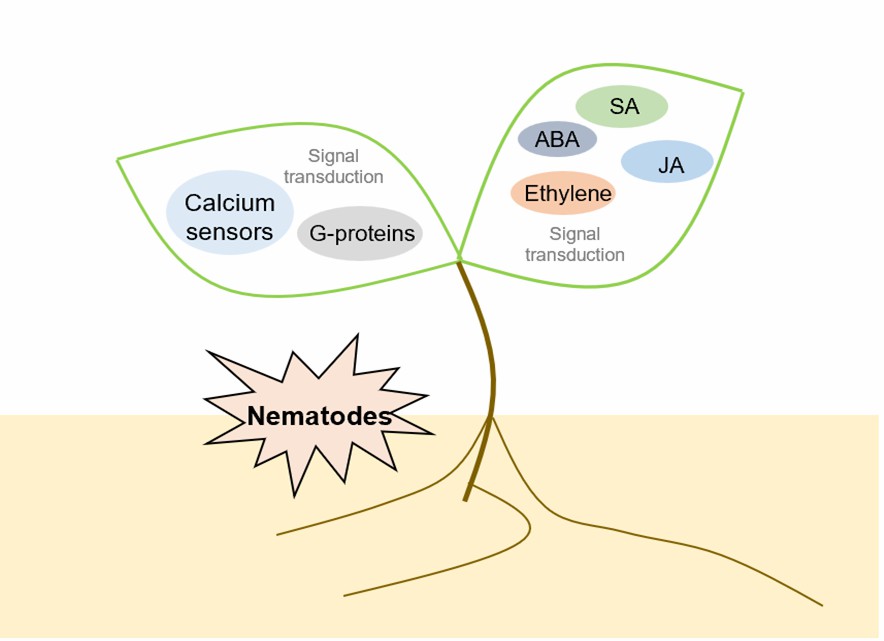Phytohormone metabolic pathways play an important role in plant disease resistance. During the interaction between plant parasitic nematodes and hosts, many hormones metabolic pathways are involved, among which auxin (IAA) and cytokinin (CTK) metabolic pathways are mainly related to the establishment and maintenance of nematode feeding sites. The metabolic pathways of salicylic acid (SA) and jasmonic acid (JA) are mainly related to plant resistance, and ethylene (ethylene, ET) can co-operate with the auxin pathway or jasmonic acid pathway to have a corresponding impact.
Lifeasible develops an advanced platform equipped with advanced instruments and professional staff to perform mechanism analysis of effector proteins with a high standard. We customize featured services according to customers' needs. We deliver satisfactory and reliable results and reports on time to our customers worldwide.
 Fig.1 Plant hormone signaling crosstalk in response of nematodes.
Fig.1 Plant hormone signaling crosstalk in response of nematodes.
Lifeasible offers services covering mechanism analysis of effector proteins to meet your research demands. With years of experience in plant science, our professional platforms can help our clients solve types of difficulties. If you are interested in our services or have any questions, please feel free to contact us or make an online inquiry.
Lifeasible has established a one-stop service platform for plants. In addition to obtaining customized solutions for plant genetic engineering, customers can also conduct follow-up analysis and research on plants through our analysis platform. The analytical services we provide include but are not limited to the following:
Why Do Plants Blush When They Are Hungry?
April 26, 2024
STU-CRISPR System Improves Plant Genome Editing Efficiency
April 19, 2024